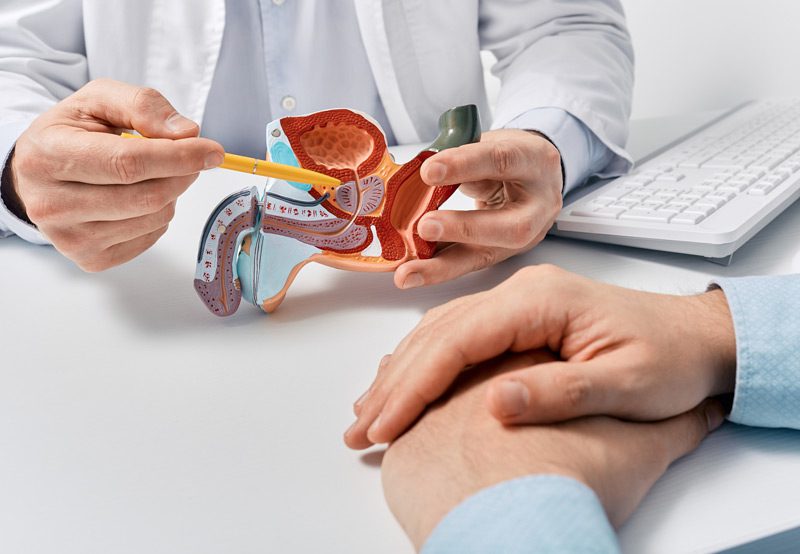

Erectile dysfunction (ED) is the inability to achieve or maintain an erection sufficient for sexual activity. This condition is often associated with feelings of frustration or embarrassment, and it can affect overall quality of life and relationships. Symptoms may include difficulty getting an erection, trouble maintaining an erection during sexual activity, or a reduced interest in sex. ED can be a temporary or chronic issue, and its impact can extend beyond physical health, affecting emotional well-being and intimacy.
Causes of Erectile Dysfunction
ED can be caused by a range of physical, psychological, and lifestyle factors, including:
-
- Existing Conditions: Erectile dysfunction can be a result of an existing condition such as cardiovascular disease, diabetes, and Peyronie’s disease.
- Diabetes: High blood sugar levels can damage blood vessels and nerves, affecting erectile function.
- Hormonal Imbalances: Low testosterone levels, often due to aging, can contribute to ED. Other hormonal disorders, like thyroid imbalances, can also be factors.
- Medications: Some medications, including antidepressants, antihypertensives, and pain relievers, can interfere with erectile function.
- Psychological Factors: Stress, anxiety, depression, or performance anxiety can hinder the ability to achieve or maintain an erection.
- Pelvic Surgery or Trauma: Pelvic surgeries or spinal cord injuries can damage nerves or blood vessels essential for erections.
- Lifestyle Factors: Smoking, excessive alcohol consumption, and lack of physical activity can negatively impact blood circulation and erectile health.

Diagnosis
Diagnosis of ED typically involves:
- Medical History: Discussing sexual history, overall health, medications, and lifestyle factors to identify potential causes.
- Physical Exam: A thorough examination to assess blood flow, hormone levels, and any physical factors that could be contributing to ED.
- Blood Tests: Testing for hormone imbalances, diabetes, and other conditions that may be contributing to erectile dysfunction.
- Imaging Tests: In some cases, ultrasonography or other imaging techniques may be used to evaluate blood flow to the penis.
Treatment Options
Treatment for ED depends on its underlying cause and may include:
- Medications: Oral medications like sildenafil citrate (Viagra), tadalafil (Cialis), and vardenafil HCI (Levitra) can help improve blood flow to the penis.
- Hormone Replacement Therapy: Testosterone replacement therapy may be considered if low testosterone levels are contributing to ED.
- Penile Injections or Implants: For cases where medications are ineffective, penile injections (e.g., alprostadil) or penile implants may be used to restore erectile function.
- Vacuum Erection Devices: A pump that creates a vacuum around the penis to increase blood flow and trigger an erection.
- Psychotherapy or Counseling: If psychological factors like anxiety, depression, or relationship issues are contributing to ED, therapy can help address these underlying concerns.
Next Steps
Erectile dysfunction is manageable, and addressing the underlying cause is crucial. Consult with your doctor to evaluate symptoms and develop a personalized treatment plan that can improve erectile function, restore intimacy, and enhance overall quality of life.
